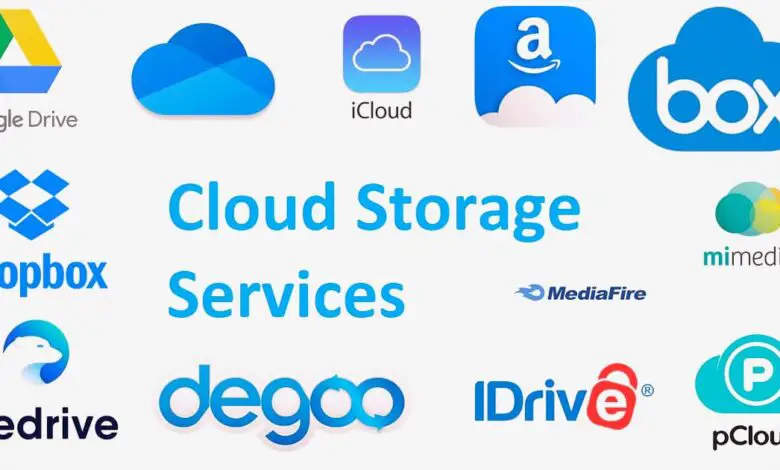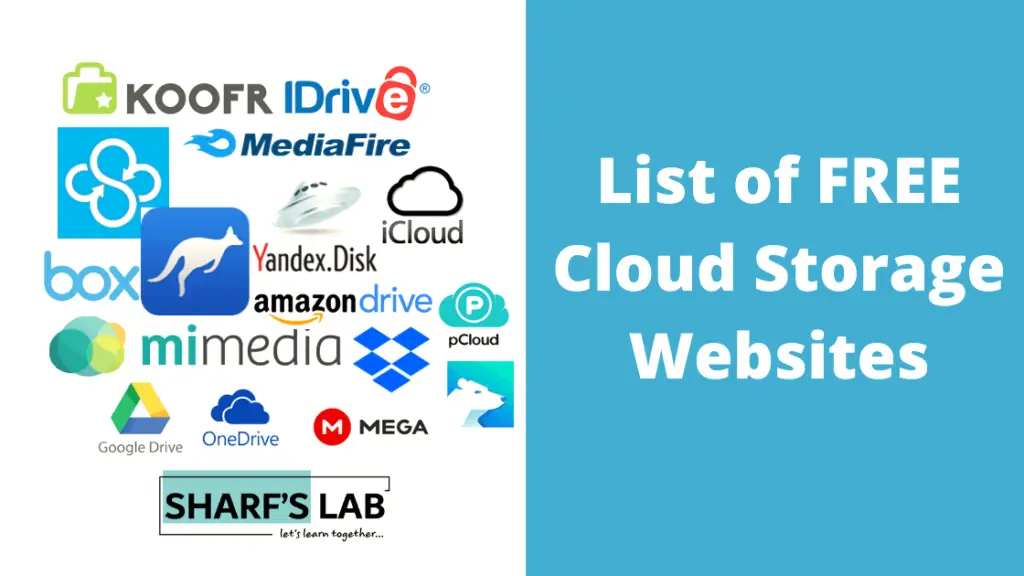Free Cloud Storage: 15 Best Free Cloud Storage in 2023
15 Best Free Cloud Storage in 2023

Free Cloud Storage: Your Digital Space in the Cloud
In today’s digital age, our lives are increasingly intertwined with the internet. Whether it’s photos, documents, or important files, we generate a vast amount of data daily. Managing and storing this data securely has become a priority for many. This is where cloud storage steps in, and the good news is that you can get started without spending a dime.

What Is Free Cloud Storage?
Free cloud storage is an online service that provides users with a certain amount of digital space to store their files and data. It allows you to upload and access your files from any internet-connected device, making it a convenient solution for data management. Here are some key aspects of free cloud storage:
1. No Cost: As the name suggests, free cloud storage comes at no monetary expense. You can sign up and use it without a subscription fee.
2. Limited Storage: Free plans typically offer a limited amount of storage space, which can range from a few gigabytes (GB) to a few terabytes (TB), depending on the provider.
3. Accessibility: Files stored in free cloud storage can be accessed from various devices, such as computers, smartphones, and tablets, making it easy to sync and share data.
4. Security: Reputable cloud storage providers implement security measures to protect your data. However, it’s essential to be aware of the security settings and practices of the service you choose.
Popular Free Cloud Storage Services
Several well-known providers offer free cloud storage options. Here are a few of the most popular ones:
1. Google Drive: Google Drive provides 15 GB of free storage. It integrates seamlessly with Google’s suite of productivity tools like Google Docs, Sheets, and Slides.
2. Dropbox: Dropbox offers 2 GB of free storage initially, with opportunities to earn more through referrals and other activities.
3. Microsoft OneDrive: OneDrive provides 5 GB of free storage and is closely integrated with Microsoft Office apps.
4. Apple iCloud: iCloud offers 5 GB of free storage to Apple device users. It’s designed for seamless integration with iOS and macOS.
5. Box: Box provides 10 GB of free storage and is known for its collaboration features, making it popular among businesses.
Advantages and Limitations
15 Best Free Cloud Storage in 2023 – Up to 200 GB Free Storage
Advantages of Free Cloud Storage:
- Cost-Efficient: It doesn’t require a financial commitment.
- Accessibility: You can access your files from anywhere with an internet connection.
- Easy Sharing: Sharing files with others is straightforward.
- Data Backup: It serves as a reliable backup solution.
Limitations of Free Cloud Storage:
- Limited Space: Free plans have storage limitations, which may not be sufficient for extensive data storage.
- Security: While providers implement security measures, sensitive data may require additional protection.
- File Size Restrictions: Some services impose file size limits on uploads.
- Ads and Upselling: Free plans may come with advertisements and occasional upselling prompts.
Conclusion
Free cloud storage is a valuable resource for individuals and businesses looking to manage and back up their data conveniently. While it offers limited space, it can be an excellent starting point. As your needs grow, you can consider upgrading to a paid plan for more extensive storage and additional features. Remember to choose a reputable provider with strong security measures to ensure the safety of your data. So, go ahead and explore the world of free cloud storage to simplify your digital life.
FAQs (Frequently Asked Questions)
1. How do I choose the right free cloud storage service for my needs?
- When choosing a free cloud storage service, consider factors such as the amount of storage offered, compatibility with your devices, ease of use, and any specific features you require.
2. Can I upgrade my free cloud storage plan to get more space?
- Yes, many providers offer paid plans with larger storage capacities and additional features. You can usually upgrade your plan at any time.
3. Is my data safe in free cloud storage?
- Reputable cloud storage providers implement security measures to protect your data. However, it’s advisable to use strong passwords and enable two-factor authentication for added security.
4. What happens if I exceed the storage limit on a free plan?
- If you exceed your free storage limit, you may need to delete files to make room for new ones or consider upgrading to a paid plan with more storage.
5. Can I share files with others using free cloud storage?
- Yes, most free cloud storage services allow you to share files and folders with others. You can typically generate shareable links or invite collaborators to access your files.
6. Are there any restrictions on the types of files I can store in free cloud storage?
- While most types of files are allowed, some services may have restrictions on certain file types, such as executable files. It’s essential to review the terms of service of your chosen provider.
7. Do I need an internet connection to access my files stored in the cloud?
- Yes, you need an internet connection to access files stored in cloud storage. However, some services offer the option to download files for offline access.
8. Can I trust free cloud storage providers with my personal data?
- Established providers prioritize data security, but it’s essential to research and choose a reputable company with a strong track record in safeguarding user data.
9. What happens to my data if the free cloud storage service discontinues its free plan?
- If a service discontinues its free plan, they typically provide ample notice, allowing users to back up or migrate their data. Always be prepared with backups of critical information.



